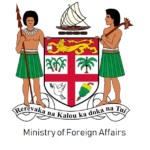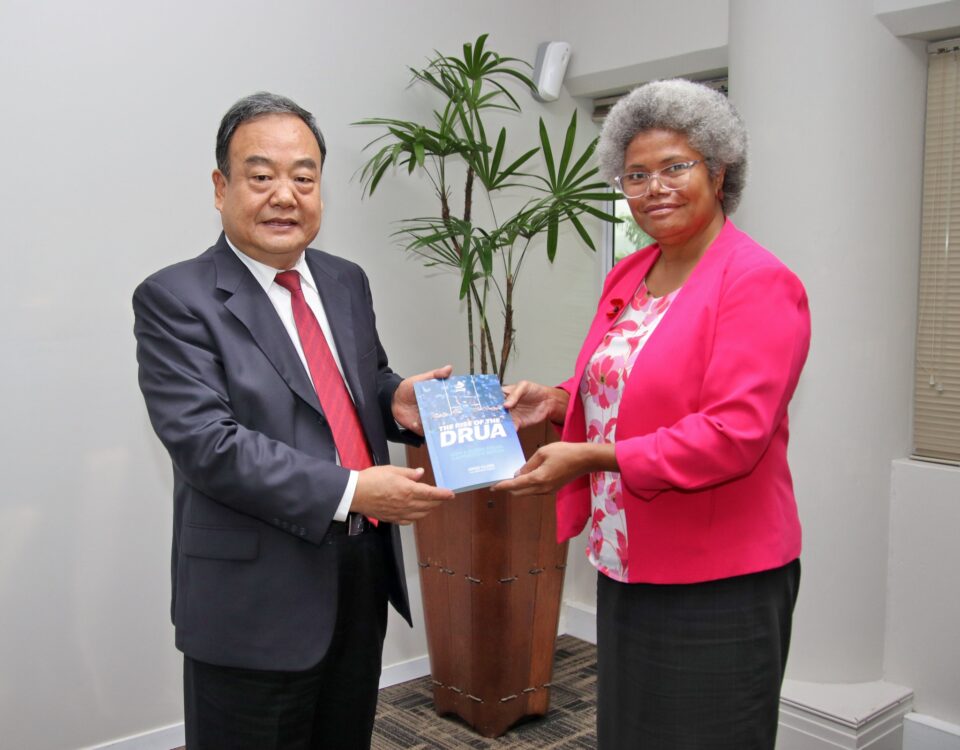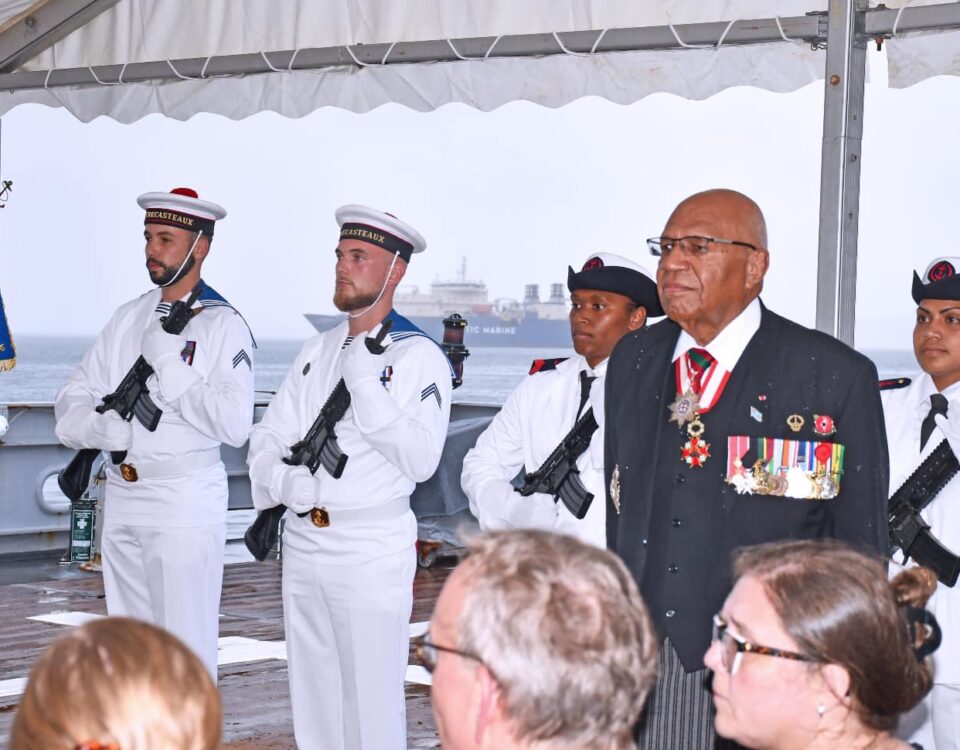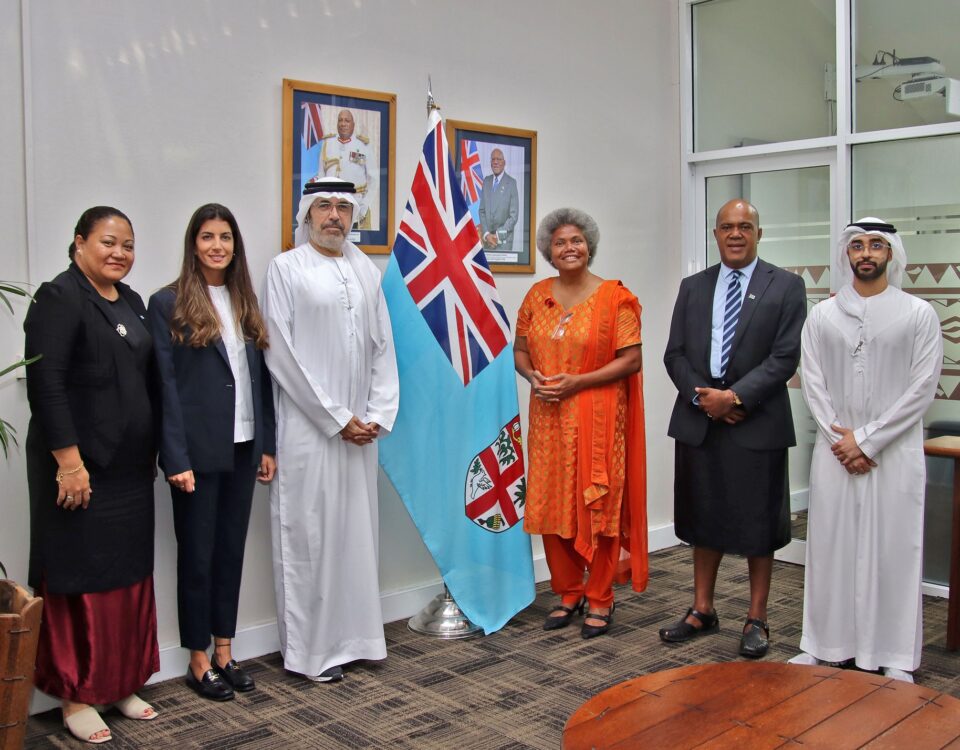
Prime Minister Hon. Voreqe Bainimarama’s Speech at the Fiji Domestic Launch Event – Panel Discussion on Ocean
03/12/2020
Statement from the Permanent Secretary for Health & Medical Services Dr James Fong – 6/12/20
06/12/2020Published On: 03/12/2020
Honourable Ministers;
His Excellency, Sujiro Seam, European Union Ambassador to Fiji and the Pacific;
Her Excellency Anna Dorney, Acting Australian High Commissioner to Fiji;
Deputy Director General, Pacific Community, Dr Audrey Aumua;
Dr Wulf Killmann, G.I.Z. Director, Coping with Climate Change in the Pacific Island Programme;
Ladies and Gentlemen.
Bula Vinaka and good afternoon to you all.
We are here today—at least nominally—to officially mark the completion of three (3) critical climate-related programmes that have been carried out over the last ten (10) years with the generous assistance of the Government of the Federal Republic of Germany.
Under one of those project umbrellas was the successful relocation of seven (7) homes in Narikoso Village on Kadavu. My memory of handing the keys over to the families whose homes were moved to higher ground will stay with me all my life. It’s a scene I hope to see replay across Fiji as more low-lying coastal communities escape the rising Pacific.
The Coping with Climate Change in the Pacific Island Region programme, which began in Fiji, Tonga and Vanuatu, has grown to 14 Pacific Island countries. That is something to be proud of. But I truly believe that we are celebrating something much greater.
We are in an age of unparalleled danger. We have faced serious crises before: horrible wars, devastating plagues, famines that seemed to engulf entire countries. But we have never before faced the kind of long-term, enduring threat that climate change represents. Those wars, those plagues and famines—they all had an end that we could see. Even the current COVID crisis, which dominates our attention, has a predictable end. It will come when billions of human beings are vaccinated around the world. But we can expect climate change to be with us for a long time. Just slowing it will require unprecedented co-operation over decades. The vast co-operation we will need to defeat COVID pales in comparison.
Here in the Pacific, we have seen how a programme that was begun ten (10) years ago by the German Society for International Co-operation, which we know as G-I-Z, and the Pacific Community, has attracted the participation of the Governments of Australia, the United States, the European Union and Switzerland. This is the kind of co-operation we will need on a grand scale as we confront the urgent need to reach net-zero carbon emissions and adapt to the predictable effects of climate change and sea-level rise. We need the great, advanced economies of the world to come together and work with us to solve this crisis.
I note that G.I.Z. has the word “co-operation” in its name, not “development.” Although it has certainly played a major role in assisting developing countries over the decades since its founding, it has done so with an ethic of sharing and great respect.
Over the past decade, the manner in which the Fijian Government has co-ordinated its response to the climate crisis has evolved. Out of life-or-death necessity, our commitment to climate adaptation now sit at heart of our national planning, through our Climate Change Division in the Ministry of Economy.
As we look to the future of our co-operation, this Division will serve as the focal point for our work with our development partners in the climate arena, including our work with G.I.Z., and we are optimistic that German co-operation in the region and in Fiji will not only remain but strengthened.
Of course, any co-operative effort has two parts, and I want to recognize the regional organisations that were G.I.Z’s critical partners in implementing the programmes–-the Pacific Community, the Pacific Islands Forum Secretariat, the Secretariat of the Pacific Regional Environment Programmes and the University of the South Pacific.
Our regional organisations get stronger every day, and they play an indispensable part in making sure that programme activities are fully aligned to the needs and priorities of our countries. With greater co-operation from outside the region and more worthy programmes and projects emerging every year in the Pacific, co-operation and co-ordination amongst ourselves are more crucial than ever.
So I call on our Pacific regional organisations to be more engaged and to find your place within the many climate change programmes that are being implemented in our region. Even after programmes like these are complete, you are still here to build on the good work achieved, to identify best practices that can be scaled up, and replicated to support the sustainable development of our vulnerable communities and economies.
Before we wrap-up, I would like to say a few more words about the friendship between Germany and the people of the Pacific. It is a proud one that spans more than 40 years, and G.I.Z. has built strong bonds by working side by side with us to improve the quality of life for our people, develop our economies and protect our precious environment.
But something very special happened in 2017 that drew Fiji and Germany much closer. When we assumed the Presidency of the 23rd United Nations Conference of the Parties on Climate Change—COP23—the German Federal Government, the State of North Rhine-Westphalia and the city of Bonn offered an astonishing level of support. Never before had a small island developing state played such a critical role on the world stage, and we were fortunate to count on the support and co-operation of the German people—Governments at all level, civil society and public-spirited citizens.
That friendship continues today. It is why we are here. And I know it will continue in the future.
I would like to thank G.I.Z. for your commitment and dedication in serving Pacific Island communities and for your fine work in leading these three (3) co-operative projects.
Vinaka vakalevu. Thank you.





